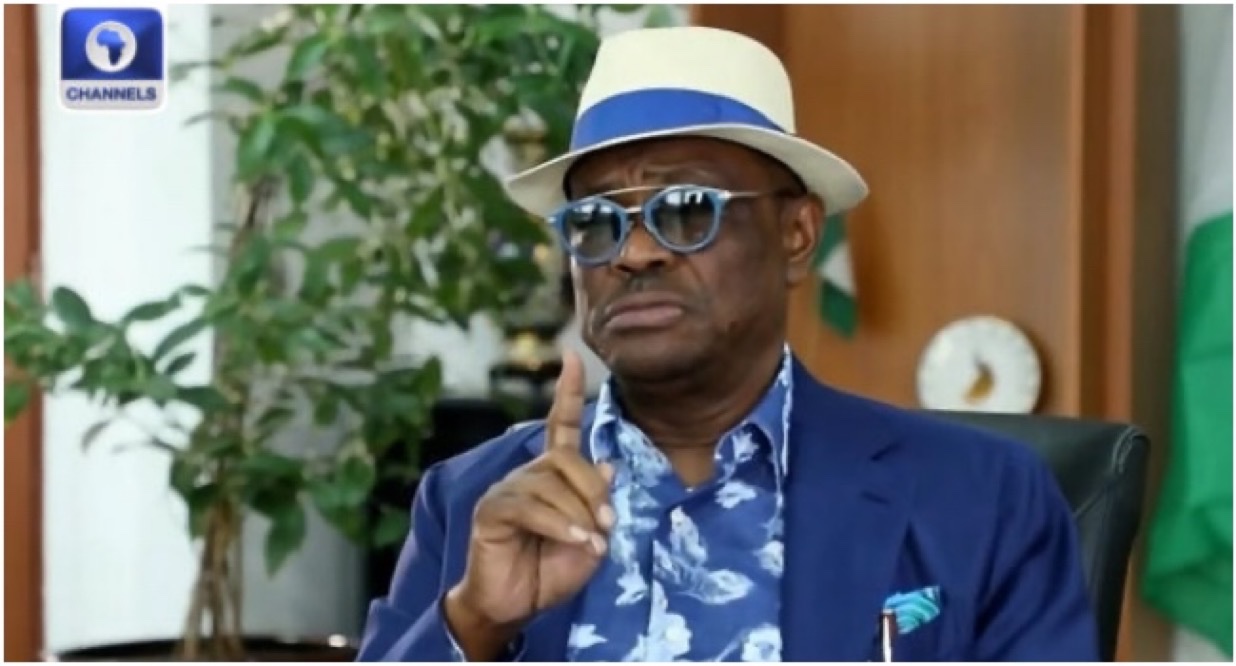The Minister of the Federal Capital Territory (FCT), has reaffirmed his unwavering support for President Bola Tinubu’s re-election bid in 2027, positioning himself as a pivotal figure in the campaign. During a media parley in Abuja on Monday, June 2, 2025, Wike declared, “I am not a liability. I’m an asset whether you agree or not. I’m an asset in ensuring that Tinubu wins a second term.” This assertion, coupled with his claim to lead Tinubu’s re-election campaign in Rivers State and secure a victory in the FCT, has ignited a firestorm of discussion about his political alignment, loyalty to the Peoples Democratic Party (PDP), and the broader implications for Nigeria’s political landscape.
Wike’s Political Maneuvering: A Balancing Act or Betrayal?
Wike, a prominent PDP chieftain and former governor of Rivers State, has long been a polarizing figure in Nigerian politics. His latest remarks come amid ongoing tensions within the PDP, where he faces accusations of anti-party activities due to his open support for Tinubu, the flagbearer of the ruling All Progressives Congress (APC). Despite calls for his expulsion from the PDP, Wike remains defiant, asserting, “No one can expel me from PDP.” This stance underscores his confidence in his political influence and his belief that his actions align with a broader vision for Nigeria’s unity and development.
Wike’s support for Tinubu traces back to the 2023 presidential election, where he openly backed the APC candidate over the PDP’s Atiku Abubakar. He justified this decision by citing the need for a southern presidency, arguing that it was a strategic move to ensure regional balance. “I made it clear that this impunity will not stand,” Wike said, referring to internal PDP dynamics that he believed favored northern interests at the time. He further claimed that his support for Tinubu did not undermine the PDP’s success in Rivers State, where the party secured the governorship and National Assembly seats in 2023. “If I was playing anti-party, PDP wouldn’t have won the governorship, NASS seats, and Rivers was the only state that gave PDP that kind of victory,” he stated.
However, Wike’s dual allegiance—serving as a minister in Tinubu’s APC-led administration while maintaining his PDP membership—has drawn sharp criticism. Ndubuisi Nwobu, former PDP chairman in Anambra State, labeled Wike a “coward” for not formally joining the APC, accusing him of undermining the PDP while clinging to its membership for strategic leverage. “If Wike were man enough, he would go and obtain an APC membership card,” Nwobu remarked, highlighting the perceived contradiction in Wike’s political posturing.
Strategic Asset or Political Opportunist?
Wike’s declaration of being an “asset” to Tinubu’s re-election campaign is rooted in his significant political clout, particularly in Rivers State, a key battleground in Nigerian politics. As a former governor, Wike built a formidable political structure in the South-South region, empowering numerous loyalists through appointments and contracts. Former Deputy Speaker Chibudom Nwuche recently praised Wike’s influence, predicting a “landslide victory” for Tinubu in Rivers State due to Wike’s endorsement and the alignment of both PDP and APC structures in the state.
Wike’s confidence extends beyond Rivers State. He has vowed to deliver the FCT for Tinubu in 2027, a bold claim given Abuja’s diverse political landscape. His tenure as FCT Minister has been marked by visible infrastructure projects, earning praise from figures like former Benue State Governor Samuel Ortom, who described Wike’s developments in Abuja as “monumental.” Ortom called on Nigerians to support Tinubu’s administration, citing Wike’s transformative work as evidence of the president’s commitment to national development.
Yet, Wike’s critics argue that his actions are driven by personal ambition rather than national interest. The Coalition of United Political Parties (CUPP) dismissed Wike’s sincerity, with National Secretary Peter Ameh accusing him of prioritizing his position in Tinubu’s government over the welfare of Nigerians. “Wike is working to discredit the coalition because it seeks to democratically remove President Tinubu, his principal,” Ameh stated, pointing to Wike’s dismissal of opposition efforts to unseat Tinubu in 2027.
A One-Party State in the Making?
Wike’s outspoken support for Tinubu has fueled concerns among opposition figures that Nigeria is drifting toward a one-party state. The defection of prominent PDP members, including Oborevwori and Okowa, has weakened the opposition’s prospects for 2027. Kenneth Okonkwo, a former Labour Party spokesperson, emphasized the need for a coalition to challenge Tinubu, warning that defections to the APC are motivated by expectations of electoral manipulation. “If the elites come together like they did in 2014 to confront Goodluck Jonathan in 2015, they will unseat Tinubu in 2027,” Okonkwo stated.
Wike, however, remains dismissive of the opposition’s chances. He has argued that the PDP cannot win in 2027 without resolving its zoning issues and internal conflicts. “PDP is not ready, and it’s very obvious,” he said during a media chat in April 2025, accusing Atiku of hypocrisy and failing to honor past agreements. Wike’s refusal to back Peter Obi in 2023, whom he described as a “social media candidate,” further highlights his pragmatic approach to politics, prioritizing winnability over party loyalty.
Join our Whatsapp channel to stay updated always!



w9yn09
ggqtqr
ez6m68
wbcj7r
mq6job
1fpwl9